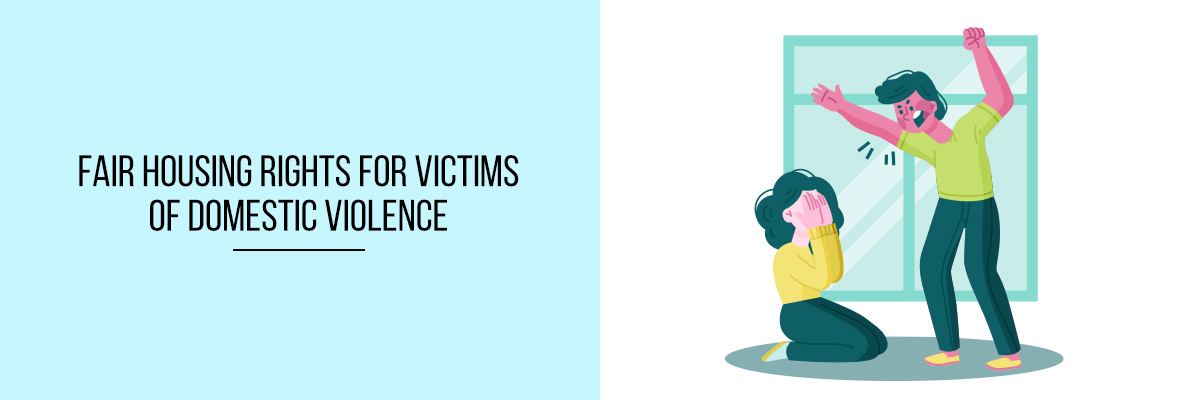In The United States, more than one in four women and one in 10 men have been victims of domestic violence. It can be a family member, an ex-partner, or a stranger. Unfortunately, domestic violence is not just about physical violence but can also include emotional or psychological abuse. Domestic violence is no longer acceptable. It is a crime, and it is illegal to discriminate against people because of their past or present relationship. Many survivors of domestic violence face discrimination in housing.
There are laws that protect domestic violence victims from discrimination in a wide variety of situations, including renting or purchasing a home. Unfortunately, laws that were designed to protect victims of abuse are not always followed by housing providers. This is why it is important for victims of domestic violence to understand their rights and how those rights can protect them from civil and criminal prosecution.



Fair Housing Laws for Victims of Domestic Violence
Governments around the world are working to create a more fair and just society, and the United States is no exception. Housing discrimination has been illegal and prohibited in the United States since 1968 when the U.S. Department of Housing and Urban Development (HUD) was created. These laws are designed to prevent housing discrimination which is an unfair practice that denies you the right to rent or buy a home based on your race, color, religion, sex, national origin, disability, and familial status.
The Fair Housing Act of 1968 prohibits discrimination in the sale, rental, and financing of housing in accordance with the provision of the law known as the “right to fair housing.” This Act is based on the Fourteenth Amendment of the Constitution, which guarantees to all persons equal protection of the laws.
After a domestic violence incident, many victims can face eviction from their homes or face the loss of their housing subsidies with the loss of limited financial resources. If eviction doesn’t happen, victims are often placed in “survivor-only” programs or are forced to continue in their abusive homes. This prevents victims from gaining the financial stability necessary to move on with their lives.
In the aftermath of domestic violence, victims face many challenges. Although there are laws designed to protect victims of all violence, housing authorities, landlords, and other housing providers often hold misconceptions about victims’ safety and commitment to safety. In recent years, the Fair Housing Act (FHA) has been interpreted by housing authorities, landlords, and landlords’ associations to prohibit housing providers from terminating housing, evicting, or otherwise denying housing to victims of domestic violence.
Final Words
Having a stable, safe home is vital to healing from a traumatic relationship. The Fair Housing Act and related state laws protect victims of domestic violence from housing discrimination. If your landlord or mortgage company has refused to allow you to break your lease or otherwise ended your tenancy because of domestic violence, you may have legal rights under the Fair Housing Act or North Carolina’s Landlord-Tenant laws.
The landlords should understand the Fair Housing Act and their state’s landlord-tenant laws to ensure they are providing housing to individuals based on their character, not their past experiences. To know more about the housing rights of victims of domestic violence, attend the Compliance Prime webinar.


